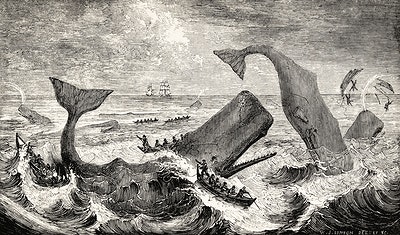Today’s post is a SubscribeStar Saturday exclusive. To read the full post, subscribe to my SubscribeStar page for $1 a month or more. For a full rundown of everything your subscription gets, click here.
It’s that time of year again: summer! That means we’re due for The Portly Politico Summer Reading List 2023!
For new readers, my criteria is pretty straightforward. To quote myself from the 2016 list:
The books listed here are among some of my favorites. I’m not necessarily reading them at the moment, but that doesn’t mean you shouldn’t!
Pretty vague, I know. Additionally, I usually feature three books, plus an “Honorable Mention” that’s usually worth a read, too.
For those interested, here are the prior installments:
- “The Portly Politico Summer Reading List 2016“
- “The Portly Politico Summer Reading List 2019“ (SubscribeStar)
- “The Portly Politico Summer Reading List 2020“ (SubscribeStar)
- “The Portly Politico Summer Reading List 2021” (SubscribeStar)
- “The Portly Politico Summer Reading List 2022” (SubscribeStar)
With that, here’s The Portly Politico Summer Reading List 2023:
1.) “The Legend of Sleepy Hollow” and Other Stories from The Sketch Book, Washington Irving – There are dozens of compilations of Washington Irving’s The Sketch Book of Geoffrey Crayon, Gent. The book has been in continuous print since its first publication in 1819-1820, which is remarkable: at the time, American literature was in its infancy, struggling to differentiate itself from the flood of European novels, poetry, and short stories coming out of the Old World at the time. Irving, along with his contemporary James Fenimore Cooper, launched American literature beyond our own hardscrabble frontiers into the wider world, and both authors became the first Americans whose works were read widely in Europe.
I picked up this Signet Classics edition (ISBN: 0-451-5301-8) approximately fifteen years ago, largely on the strength of its two most famous short stories: “The Legend of Sleepy Hollow” and “Rip Van Winkle.” These tales account for the vast popularity of the collection, but aside from a few other essays on American life, the vast majority of the collection takes place in England.
One of the most memorable essays from my first reading was “Westminster Abbey,” about the impressive abbey near London. Here’s the first very first paragraph:
On one of those sober and rather melancholy days in the latter part of autumn when the shadows of morning and evening almost mingle together, and throw a gloom over the decline of the year, I passed several hours in rambling about Westminster Abbey. There was something congenial to the season in the mournful magnificence of the old pile, and as I passed its threshold it seemed like stepping back into the regions of antiquity and losing myself among the shades of former ages.
How’s that for setting the scene and the mood? There is something mystical about that period in late autumn that is “rather melancholy,” and everything seems to have a certain shadowy gloominess cast over it. I’ve always thought that the best time to learn about colonial American history—especially the history of New England—is in late autumn, when that damp crispness enters the air. It feels like Plymouth Rock, or Salem Town, or the backwoods of New Hampshire.
This summer, I hope to reread this collection for the first time in fifteen years. The essays on Christmas—“Christmas Eve,” “Christmas Day,” and “Christmas Dinner“—are instantly charming, and explain much of the more ancient English traditions of celebrating Christmas, including ghost stories around the fire (which became more popular in the Victorian era).
Needless to say, The Sketch Book has had an immense influence on my own writing, particular my travel writing. I’m no Washington Irving (or Geoffrey Crayon), but my second book Arizonan Sojourn, South Carolinian Dreams: And Other Adventures clearly illustrates Irving’s influence upon my writing style.
To read the rest of this post, subscribe to my SubscribeStar page for $1 a month or more.








